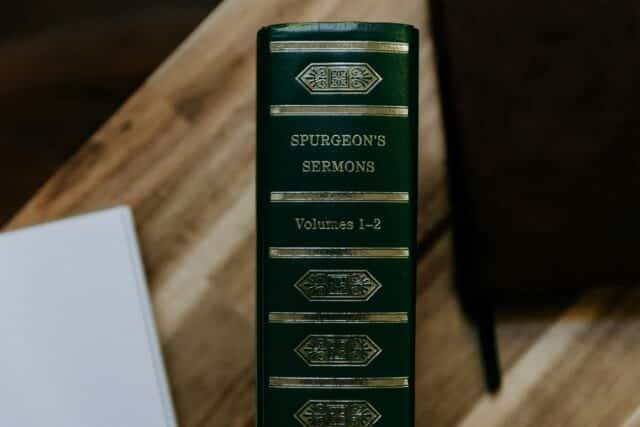Article
6 Questions Spurgeon Would Ask Aspiring Church Planters
If you were to ask Spurgeon about a calling to church planting, I imagine he would ask you at least six questions.

Spurgeon was no stranger to men asking his opinion on their call to ministry. As he taught prospective pastors and planters in his Pastors’ College, men would seek his advice on the call to ministry. The second lecture in his book, Lectures to My Students, covers “The Call to the Ministry.”
We can read this lecture—and you should—and apply it to church planters and the ministry of planting. If you were to ask Spurgeon about a calling to church planting, I imagine he would ask you at least six questions.
1. Is the desire unshakeable?
The first question to answer is this, “Do you desire the noble work” (1 Timothy 3:1)? Do you really want to do this? If your answer is, “I think so,” or, “Yeah, maybe.” The answer is probably no. You may like the idea of being a planter more than the actual work of planting. A true call to planting and ministry is unshakeable. You may try to ignore it, but it keeps bubbling up. Think of the call to plant a church as the inability to say no. As Spurgeon said:
The first sign of the heavenly call is an intense, all-absorbing desire for the work. In order to be a true call to the ministry there must be an irresistible, overwhelming craving and raging thirst for telling to others what God has done to our own souls.
Spurgeon shared a line he heard given to others who were wondering about their calling: “Do not enter the ministry if you can help it.” Why? Because it is going to be insanely demanding, difficult, and wonderful. There must be a burning passion to point people to Jesus. Spurgeon famously said:
If any student in this room could be content to be a newspaper editor, or a grocer, or a farmer, or a doctor, or a lawyer, or a senator, or a king, in the name of heaven and earth let him go his way; he is not the man in whom dwells the Spirit of God in its fulness, for a man so filled with God would utterly weary of any pursuit but that for which his inmost soul pants.
If you could sleep easy without planting and pastoring, or if you could go about your life without the itch—then you have your answer. But this doesn’t mean that you couldn’t be in sales or engineering. Spurgeon would say that any good planter could be successful in many things, “A man who would succeed as a preacher would probably do right well either as a grocer, or a lawyer, or anything else. A really valuable minister would have excelled at anything.” It takes many gifts, talents, and abilities to be a faithful and effective planter. And many of those skills would reap a harvest in a different field of work, too.
Is the desire unrelenting?
2. Is the desire pure?
If your passion to plant is unshakeable, you are zealous and ready to go, Spurgeon would want you to go a little deeper on the inspection of your call. He would ask you to examine your motive for planting. Spurgeon:
If a man can detect, after the most earnest self-examination, any other motive than the glory of God and the good of souls in his seeking the pastorate, he had better turn aside from it at once.
Why do you want to plant? Honestly. Is it because you don’t like your current church? Is it because you just want to preach? Is it because you want to be a leader? And, Spurgeon wants to hit a nerve, if needed: Are you wanting to plant a church because you’ve “failed in everything else”? Spurgeon saw it happen. The glory of God and the good of your city/community/town/suburb must be the motive (1 Corinthians 10:31).
3. Is the desire enduring?
How long have you had the desire to plant? Spurgeon would help you discern if this is only the flavor of the month. Maybe you heard an inspiring talk or met an excited planter and thought, “Man, I’d love to do this!” Spurgeon would caution you about the desire to plant:
It should not be a sudden impulse unattended by anxious consideration. It should be the outgrowth of our heart in its best moments, the object of our reverent aspirations, the subject of our most fervent prayers. It must continue with us when tempting offers of wealth and comfort come into conflict with it, and remain as a calm, clear-headed resolve after everything has been estimated at its right figure, and the cost thoroughly counted.
Have you counted the cost to plant?
4. Can you preach and teach?
As part of the pastoral qualifications in 1 Timothy 3 and Titus 1, you must be able to teach. Spurgeon said, “There must be aptness to teach and some measure of the other qualities needful for the office of a public instructor.”
One way to answer this question is to think about what happens when you preach and teach. Do you enjoy studying for sermons? Do texts seem to open up to you? Do you enjoy preaching? But what we think of our preaching abilities isn’t the greatest indicator. Spurgeon said, “There is not much dependence to be placed upon our own opinion, but much may be learned from judicious, spiritual-minded persons.” What has your pastor said about your preaching? How are people encouraged, edified, and helped from your preaching? What do they say? Do people want to hear you?
Your ability to preach and teach will grow over time, but there must be some recognizable fruit now.
5. Can you pastor and lead?
Preaching is not all there is to pastoral ministry. While preaching is a huge part of the gospel ministry, you must have the character qualifications of a pastor, and the competency to lead. As Spurgeon said:
There must be other talents to complete the pastoral character. Sound judgment and solid experience must instruct you; gentle manners and loving affections must sway you; firmness and courage must be manifest; and tenderness and sympathy must not be lacking. Gifts administrative in ruling well will be as requisite as gifts instructive in teaching well. You must be fitted to lead, prepared to endure, and able to persevere. In grace, you should be head and shoulders above the rest of the people, able to be their father and counsellor.
Can you lead, feed, counsel, and care for others? All planters and pastors also need some administrative gifts. Others may excel in them, but they cannot be totally absent in you. You have to be able to plan, organize, schedule, delegate, and decide. “If such gifts and graces be not in you and abound,” Spurgeon concludes, “it may be possible for you to succeed as an evangelist, but as a pastor you will be of no account.”
6. Are you a soul-winner?
Spurgeon would end with a question that meant a great deal to his vision for pastoral ministry and planting. Are you a soul-winner? And, he would want to know if you are one now. He wouldn’t want to know if you plan to become one. He’d ask if God has used you in the new life of another.
He said in his lecture that for men discerning a call, “There must be some measure of conversion-work in your irregular labors before you can believe that preaching is to be your life-work.” He means that before you get a title, a pulpit, a team—are you an evangelist now? As a church member, in your current church, are you sharing the gospel? In your college ministry, have you led anyone to Christ? Spurgeon believed a fisher of men ought to catch “fish.” He said:
Prophets whose words are powerless, sowers whose seed all withers, fishers who take no fish, soldiers who give no wounds—are these God’s men? Surely it were better to be a mud-raker, or a chimney-sweep, than to stand in the ministry as an utterly barren tree.
So, aspiring planter, how would you answer these questions?
Process your answers with your pastors, friends, and, if married, your spouse.




